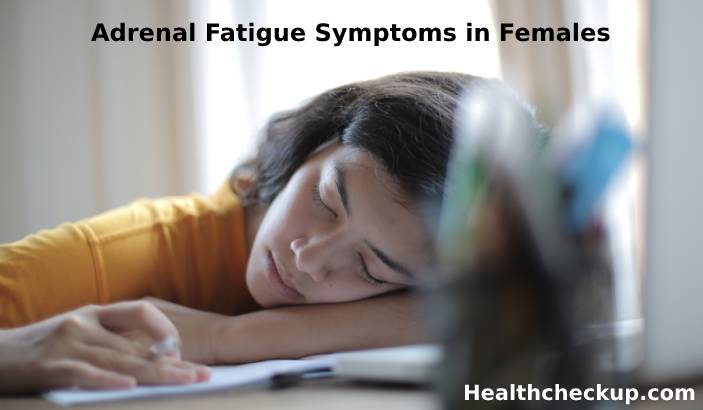Introduction
Adrenal fatigue is a controversial and often misunderstood condition. Proponents argue that it occurs when the adrenal glands, responsible for producing essential hormones like cortisol and adrenaline, become overworked and unable to maintain optimal hormone levels. In turn, this leads to a range of physical and emotional symptoms that can severely impact one’s quality of life.
Though anyone can experience adrenal fatigue, it appears to be more prevalent in females. This article will delve into the unique symptoms of adrenal fatigue in women, the reasons behind their susceptibility, and the steps that can be taken to alleviate this condition.
The Adrenal Glands and Hormones: A Brief Overview
The adrenal glands, small but powerful organs situated above the kidneys, produce hormones that play a crucial role in managing stress and maintaining overall health. Cortisol, the primary stress hormone, helps regulate metabolism, immune function, and the body’s response to stress. Adrenaline, another hormone, helps control blood pressure and the body’s “fight or flight” response.
When the body encounters prolonged stress, the adrenal glands struggle to keep up with the demand for these hormones, ultimately leading to adrenal fatigue.
Symptoms of Adrenal Fatigue in Females
1. Chronic Fatigue
A sense of persistent tiredness is the most common and well-known symptom of adrenal fatigue. Women with adrenal fatigue often find it difficult to wake up in the morning, experience energy slumps throughout the day, and still feel exhausted even after a full night’s sleep.
2. Hormonal Imbalances
Adrenal fatigue can lead to hormonal imbalances, particularly in women. This results in irregular periods, worsened premenstrual syndrome (PMS), or heightened menopausal symptoms.
3. Unexplained Weight Gain
Women with adrenal fatigue might notice sudden, unexplained weight gain, particularly around the abdomen. This is due to the cortisol imbalance, which can cause the body to store fat more easily.
4. Sleep Disturbances
Sleep disturbances, such as insomnia or restless sleep, are common in adrenal fatigue sufferers. This can exacerbate other symptoms, as the body struggles to rejuvenate itself during the night.
5. Brain Fog
Difficulty concentrating, memory lapses, and general mental fuzziness are common cognitive symptoms of adrenal fatigue. Women struggle to complete tasks or find it hard to focus on conversations.
6. Mood Swings
Adrenal fatigue can contribute to mood swings and heightened emotional sensitivity. Irritability, anxiety, and depression are not uncommon, as the body’s hormonal balance is disrupted.
7. Weakened Immune System
Chronic stress and cortisol imbalances can weaken the immune system, making women with adrenal fatigue more susceptible to infections and illnesses.
8. Hair Loss
Hair loss or thinning is another possible symptom of adrenal fatigue in females, as cortisol imbalances can disrupt the hair growth cycle.
Why Are Females More Susceptible to Adrenal Fatigue?
Several factors make women more prone to adrenal fatigue:
1. Hormonal Fluctuations
Women experience hormonal fluctuations throughout their lives, including during menstruation, pregnancy, and menopause. These fluctuations can strain the adrenal glands and make it more challenging to maintain hormonal balance.
2. Greater Emotional Stress
Women often take on multiple roles and responsibilities, which can lead to increased emotional stress. This additional burden contributes to adrenal fatigue.
3. Genetic Factors
There are genetic factors that predispose women to adrenal fatigue or make them more vulnerable to the effects of chronic stress.
Alleviating Adrenal Fatigue Symptoms in Females
1. Prioritize Sleep
Adequate rest is crucial for adrenal recovery. Aim for at least 7-9 hours of quality sleep each night, establish a consistent sleep schedule, and create a sleep-conducive environment in your bedroom.
2. Manage Stress
Finding healthy ways to cope with stress is essential in combating adrenal fatigue. Consider incorporating mindfulness practices, such as meditation or yoga, into your routine. Also, make time for hobbies and activities that bring joy and relaxation.
3. Maintain a Balanced Diet
A nutrient-rich diet can help support adrenal health. Focus on whole foods, such as fruits, vegetables, lean proteins, and whole grains. Limit processed foods, sugar, and caffeine, which can exacerbate adrenal fatigue symptoms.
4. Exercise Regularly
Moderate exercise can be beneficial for adrenal fatigue sufferers. Opt for low-impact activities, such as walking, swimming, or yoga, to avoid putting excessive strain on the adrenal glands. Aim for at least 30 minutes of exercise most days of the week.
5. Stay Hydrated
Dehydration can worsen adrenal fatigue symptoms. Drink plenty of water throughout the day, aiming for at least eight 8-ounce glasses.
6.Consider Supplements
Discuss with your healthcare provider whether specific supplements, such as adaptogenic herbs, vitamin C, or B vitamins, might be helpful in supporting adrenal function.
7. Seek Professional Guidance
If you suspect you have adrenal fatigue, consult with a healthcare professional who can assess your symptoms and recommend appropriate treatment options.
Conclusion
Adrenal fatigue can have a significant impact on a woman’s life, affecting her physical, emotional, and cognitive well-being. By recognizing the symptoms and taking proactive steps to manage stress, prioritize self-care, and maintain a healthy lifestyle, women can begin to alleviate the effects of adrenal fatigue and regain control of their health. Always consult with a healthcare professional for personalized advice and support on your journey to recovery.








